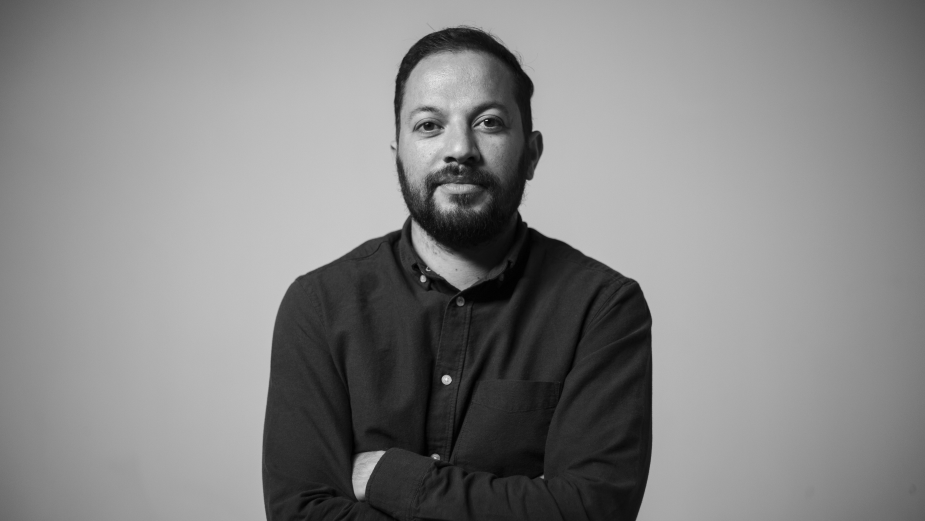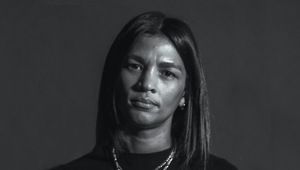
Remote Control in an Uncertain World

As I write this, we’re all sharing an intense, emotionally challenging and potentially era-defining moment. However, varied its impact may be, the coronavirus pandemic has almost certainly affected us all, and set forth a challenging task of navigating new paths in our everyday lives, and livelihoods.
Shortly after our first cases of Covid-19, South Africa went into one of the hardest lockdowns globally. The restrictions that were put in place by our government were extremely prohibitive, with only services deemed 'essential' allowed to operate. The debate on whether or not these restrictions slowed the spread and flattened the curve will rage on for years, and the economic impact will be felt for just as long. No industry was left unscathed, some suffering more than others.
After a massive effort lobbying the government, the CPA (Commercial Producers Association) in partnership with multiple industry bodies and individuals, got commercial production open and operating. Strict protocols were set in place that most notably limited the size of crews, but with a large number of our industry operating as freelancers without secondary sources of income, this came as a welcomed relief.
And so, along with the go-ahead to do what we love, came a new way of doing things. It was time to re-learn the ropes, and it’s been an interesting journey revisiting my role at FORT during this time.
With the new operating structures in place across the industry, I was anxious to get a feel for the practicality of productions on the ground, under these new protocols. Thankfully, I didn’t have to wait very long, as our talented directors quickly won four TVCs that went into production right away.
Across these vastly different productions, the new ropes quickly became evident. Without a view on how quickly things will go back to the way they were, there are some vital lessons I’ve learnt that may help producers navigating similar shooting conditions in the coming months.
Be Ready for Impact
The virus may well land up on your set, so prepare mentally for the inevitability of dealing with it. On one of the jobs, a key crew member tested positive for Covid-19 the day before the shoot. It was a challenging moment, as the gravity of the news quickly set in. The crew member interacted with cast during pre-production, and over a rather tense call with the agency and client, we diligently traced their contact with everyone.
To resolve this on a global call, the night before the first shoot day was certainly a new experience. Both the agency and client took the matter as seriously as we did, and all stakeholders availed themselves at a moment’s notice to discuss the way forward.
Thankfully, due to the strict protocols that we had put in place, there was no direct contact. By midnight, we had booked a replacement for the crew, briefed them and continued with the shoot without incident.
It’s Musical Chairs
We have a strict limit on the amount of bodies on set, which impacts the size of both crew and cast. On a rather ambitious two-day shoot, our director on the job, Amr Singh, required more cast and crew than was allowed at a single time. To counter this, we pre-lit the sets, keeping the lighting department minimal on the shoot day. The art department worked shifts, with the set-dressing team working on sets in the evenings after wrap.
The real challenge, however, was numbers on set. We meticulously staggered the call times of our featured and background extras, which put a lot of pressure on Amr Singh to get his shot in on time.
Film shoots are notorious for running behind schedule, and we simply could not afford to do this. If we ran behind, and all the talent was on set simultaneously, we would have been so far over the limit, that the repercussions would be felt beyond our shoot. As a producer shooting under these conditions, it really dawned on me that my responsibility is not only to my production, but to the industry as whole.
It was critical for us to all be on-board with this approach, and our timings ran like clockwork, as we played musical chairs throughout the day.
Approvals are challenging
Remote working has long been a characteristic of our industry, starting with conference calls for the brief and treatment, to remote approvals on Post. Before this pandemic, we’ve had on-set remote approvals––even the notorious WhatsApp video of the VT monitor to a CMO on the other side of the world. But to have an entire brief to delivery process run truly remotely, has been a learning curve for all parties.
Barking dogs, poor connections and muted microphones are the simple challenges. When your collaborations occur face-to-face, there seems to be a greater commitment to getting to a resolution. With remote approvals, however, the cycle for feedback seemingly takes a longer journey with many more layers, and this has had an impact on how quickly we can operate.
From shoot-to-shoot, I’ve gradually factored in more time for these moments to happen. Managing expectations has led to less frustration, particularly for directors who are often hamstrung by delayed feedback.
Thank goodness for technology
And yet, it’s a privilege that we’ve been able to operate like this at all. As recently as ten years ago, we may have already begun our step away from film, yet the digital workflow was nowhere close to where it is now. We were still getting our head around transcodes and file formats, let alone streaming live feeds from VT to remote, secure connections around the globe.
This remote streaming is by no means groundbreaking technology, but it’s emergence as an efficient tool may well make itself at home on sets, even in a post-Covid world. In my opinion, its benefits have outweighed its challenges.
Film People are Resilient
Under the best of conditions, our industry is physically and mentally demanding. It requires discipline and flexibility, and safety has always been at the forefront of every one of my productions––my wife and son are still figuring out why I’m always saying, “Watch your back.”
In many ways, I’m not surprised to see how quickly and robustly our crews and agencies have adapted to this new way of filmmaking. Each new protocol has been met with positivity, and a solutions-orientated approach. Each temperature scan, hand sanitisation station, and packed lunch has been welcomed. We’re a special group, and our versatility, tenacity and resilience, is why the film industry has been one of the few industries to adjust so quickly to a new way of working.
Despite the impact of this pandemic, it’s hard not to ignore the ways in which we have all grown. As a Producer, my primary focus has always been on providing fertile ground for the directors to express themselves without limitation, for everyone on my sets to feel held and safe, and importantly to give the best possible experience to my agency partners. Now I have a heightened focus on synergy and collaboration as well. After all, we’ve always been a collaborative industry, and I hope my thoughts are received as a continued step in that direction.
Craig February is executive producer at FORT










